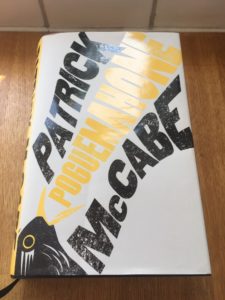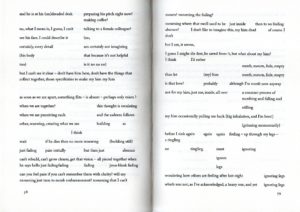Patrick McCabe’s Poguemahone:



As The Guardian says in its review,
Broadly, Poguemahone is a story of possession – of hatreds, obsessions and souls – and of what cannot be possessed, such as friends, lovers, children, even a home. Its narrative is mainly spoken by Dan Fogarty, who attends upon his 70-year-old sister, Una, who has dementia and is in a care home in Margate. Through fractured prismatic recollections …
and it really is a story told through fractured prismatic recollections that range from the 60s music scene through an abortive commune in London to run down Margate on the coast and some sort of home that the sister lives in, the truth of her ‘brother’ Dan and their history is slowly revealed.
The 600 page book is told in some form of free verse, all lines fractured into short parts, all narrative fractured. It takes some getting used to but becomes natural.
Although described as a prose poem I saw it was formatted text matching the narrator’s sometimes disordered thoughts.
